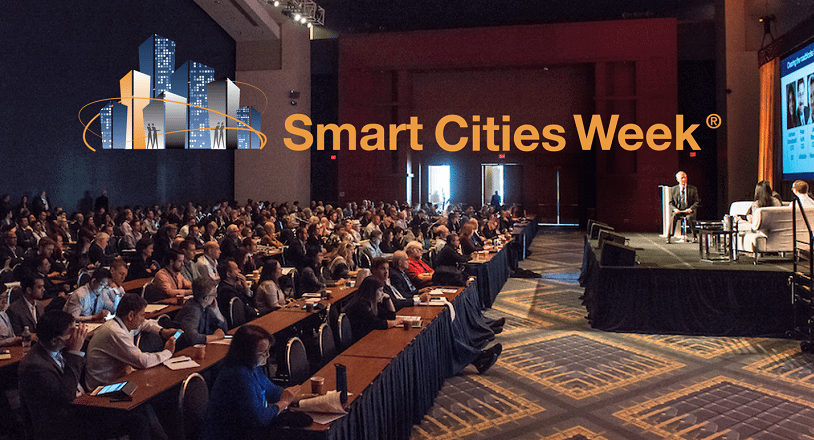On October 3–5, Consortech attended Smart Cities Week in Washington, D.C., an event that gathered 1,400 participants from across the globe. Because we work with several cities and municipalities, learning about their concerns and about new possibilities on the horizon was extremely relevant to us.
The key topics discussed were:
- Policy and planning
Predicting the policies we’ll need to introduce in the coming years is a real challenge. With everything changing so rapidly and without knowing exactly what the future holds, how can we plan effectively? - Equality
Technology is rapidly evolving, but will everyone benefit equally from its implementation? We cannot allow a digital divide to create gaps between citizens. - Security
This topic, especially in relation to data, was particularly interesting because it raises multiple questions. For example, can we justify retaining the data collected from sensors? What ethical considerations should be assessed when a camera is used as a sensor? - Resilience
With the increased frequency of extreme weather events, this topic is a highly relevant one. What urban adaptations could be considered in light of these changes?
It was interesting to note that although city representatives agree on the principles behind the technology, such as the way it’s defined and its importance, each city has its own motivations—whether it’s equality, security or resilience—for launching these kinds of projects.
Data and technology: Everyone’s concern
In additional to gathering, communicating, processing and monitoring all of the data within their jurisdiction, smart cities must also adopt the following four principles:
- They must be connected.
- They must have access to quality information in order to make the best decisions.
- They must be able to efficiently respond to their citizens and partners.
- They must innovate.
Managing data, especially big data, will be the most demanding issue facing smart cities. This topic involves two key aspects: data access and ownership. For example, if a city wants to implement smart energy policies, it will need to deal with the fact that the energy company owns a large majority of the data that is relevant to the project. In this case, the parties would have to forge a partnership in which each side reaps benefits from sharing the information. The reality is that the value of data never stops increasing, meaning that those who have it also have a certain amount of power.
Whether they are investing in a smart shift of not, cities are already facing a growing stream of data. Using technology to make the best decisions will involve handling different types of data from multiple sources. One of the resulting challenges is that data management teams are not growing at the same rate as the quantity of data becoming available. The traditional desire to “do more with less” is increasingly pertinent!
Assessing lifespan to choose the right projects
The choices surrounding technology are becoming critical since new smart infrastructure may not always have the lifespan that it did in the past. One of the conference speakers mentioned that public telephones could be kept in working order for the next several years. However, fitting them with accessible smart screen presents a profitability issue, because those screens have a short lifespan. Software solutions are running up against the same challenges; cities are attempting to integrate various systems, but they must take into account that these same systems are also evolving and that the turnover rate of equipment and systems can create significant expenses.
On the other hand, the cost of the following technology is constantly decreasing:
- Sensors
- Communications
- Computing power to process data
In short, whether we’re talking about autonomous vehicles, drones or smart transportation, cities are going to become increasingly involved with technology and connected to data. The speed at which these changes are occurring presents a real challenge for cities of all shapes and sizes.
Our team helps cities throughout North America face the many challenges related to data intelligence
